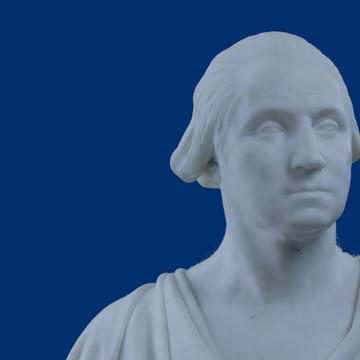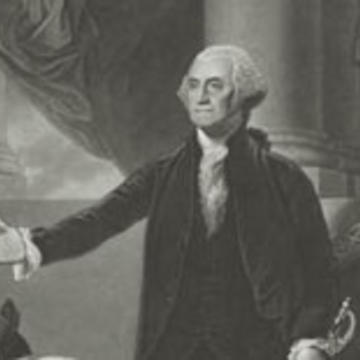The Dunbar lawsuit
How a decades-long scandalous court case threatened George Washington's estate
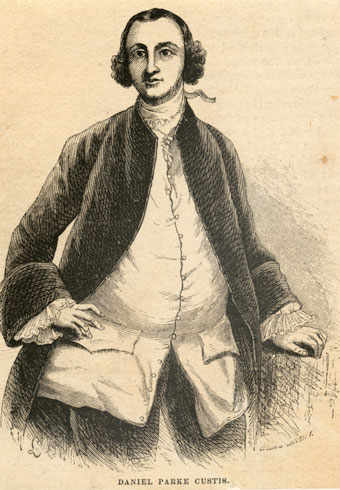
When George Washington began his courtship of the recently widowed Martha Dandridge Custis in March 1758, she served as administratrix of an estate that included 17,500 acres of land as well as more than £1,500 of liquid assets.1 With such a dowry at only 27 years old, Martha had her pick of potential husbands. Despite proposals from wealthier suitors, she chose George, a military man about one year her junior.
As George soon learned, most of the Custis estate was to go to Martha's children when they came of age. Martha's first husband, Daniel Parke Custis, had died without a will, requiring his estate to be divided among his heirs: a third for Martha to control in her own right, a third to her son John Parke “Jacky” Custis, and a third to her daughter Martha Parke “Patsy” Custis. By law, when he married Martha, George Washington assumed ownership of her third of the estate. As for the other two-thirds, he became caretaker, ensuring that the amount of property left to the Custis children by their father would in fact come into their hands when they came of age. If Washington mismanaged the estate, he would be held responsible.
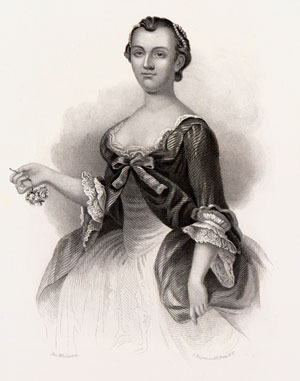
That obligation quickly proved rather burdensome. A lawsuit that had festered in the courts for 30 years reared its ugly head in 1757, likely brought to Martha's attention shortly after her husband's unexpected death.2 This was the Dunbar case, which, if lost, had the potential to put George Washington, the new administrator of the Custis estate, on the hook for £10,000. Washington wrote to Martha's lawyer with concern: "If the Money and Chattels which in any other Case would have become my absolute property should be made liable—am I accountable[?]"3
While the legal details of the case could be described as dry and tedious (Martha's lawyer wrote despairingly that one "cannot possibly know what trouble I was at during the sixteen years I was concerned"), the initial cause of the lawsuit was anything but boring.4
It began with Daniel Parke's will. Parke, the grandfather of Martha’s first husband, was a man whom historians struggle to describe with professional objectivity. Malcolm Hart Harris, author of Historic New Kent County, considered him "one of the most notorious scamps of the colonial period."5 One of Parke's contemporaries called him "a complete sparkish gentleman" and "the greatest Hector in the Town."6 Unsubstantiated stories about Daniel Parke abound; one such tale claims that in a fit of vengeance, he physically dragged a political opponent's wife out of her pew during church services.
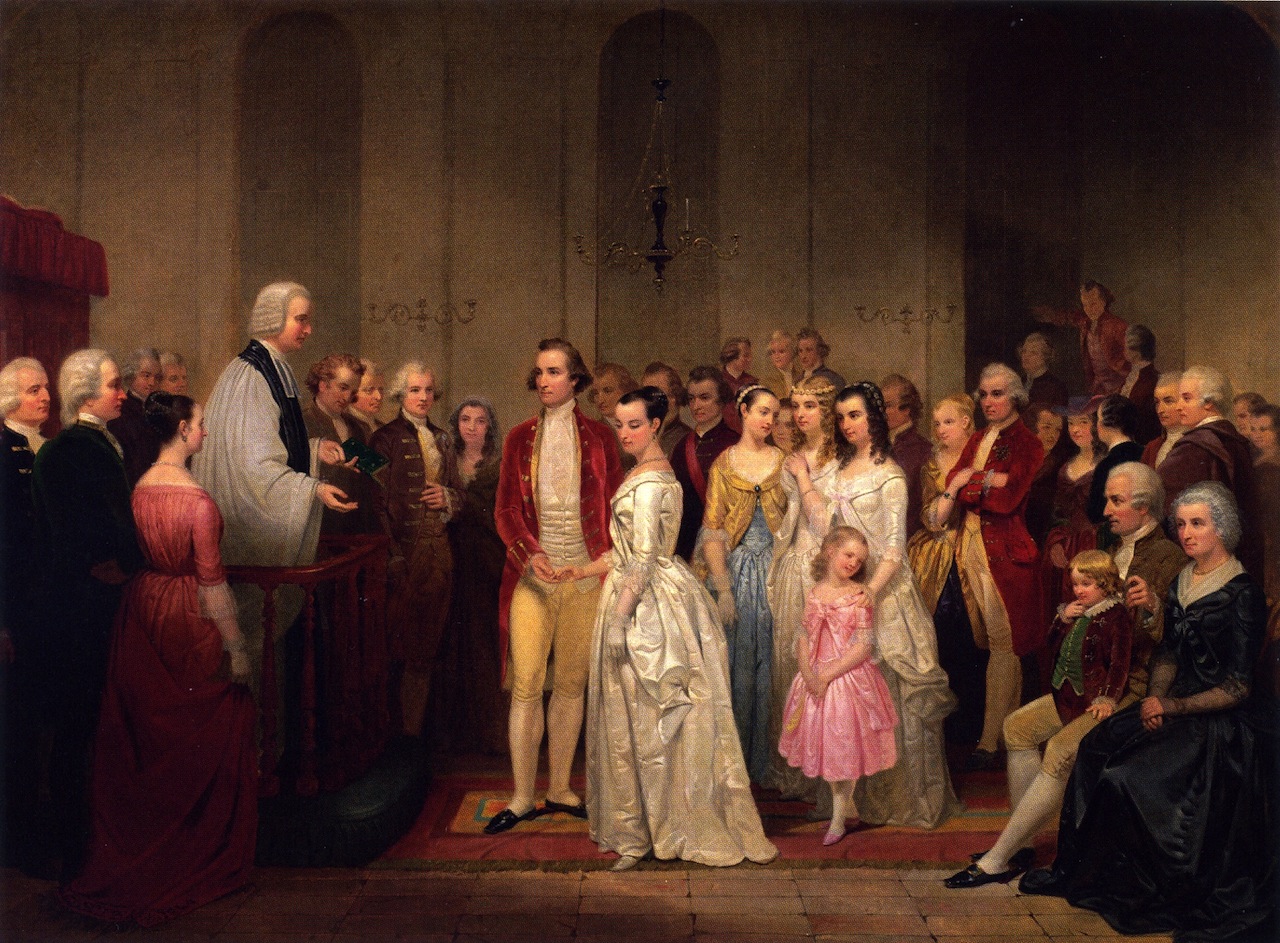
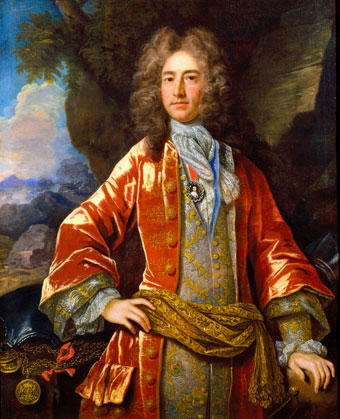
At 15 or 16 years old, in 1685, Daniel Parke married a woman named Jane Ludwell, with whom he fathered two children. Abandoning them in Virginia in 1690, he travelled to London and returned with another woman. Although he described her as a "cousin," rumors spread that she was a married woman Parke had lured from her husband. The rumors were in part confirmed when she gave birth to a son who took the surname Parke. After a disappointing political career in Virginia, Parke left both families and returned to England, with no guarantee of continued financial support for them. He served as the Duke of Marlborough's aide-de-camp at the Battle of Blenheim in 1704, and personally delivered news of the victory to the queen. Shortly afterwards, he became governor of the Leeward Islands.7
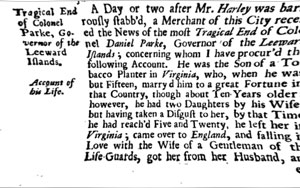
Daniel Parke's reign as governor of the Leeward Islands was nasty, brutish, and short. According to a magazine account, ‘The Tragical End of Governor Parke’ (published shortly after his death on Dec. 9, 1710), a mob of the privileged citizens of Antigua "attack'd and forc'd his Guard, entred his House, broke open his Chamber-Door, and Shot him. After which they broke his Back-bone, dragg'd him by the Heels down the Stairs; shot him again in several places; and some, whose Marriage-bed, 'tis thought, he had defiled, revenged themselves on the sinning parts, which they cut off and expos'd."8
Before meeting this spectacular end, Daniel Parke drew up an unusual will, described by his son-in-law John Custis as "unnaturall."9 He left all of his property in Antigua and the Leeward Islands to the infant daughter of a married woman. By doing so, he in effect claimed this daughter as his child, and left her a larger and more profitable estate than what he had left his legal children. Even more unusual, he stipulated that the little girl would only receive her inheritance if she would "alter her name and call herself Parke," a stipulation that extended to her heirs as well.10
Parke's eldest daughter Frances Custis, unhappily married at that point to John Custis, inherited her father's debt-ridden Virginia estate in 1711. Her husband sold almost all of the property to pay off Parke's debts, and later wished "I had never heard of that famous name of Parke..."11
A decade after Daniel Parke's death, John Custis opened a letter from a man named Dunbar Parke. Formerly named Thomas Dunbar, Dunbar Parke had married Daniel Parke's Antiguan daughter and taken her last name. Having discovered new debts in Daniel Parke's Antiguan property, Dunbar wanted Custis to pay them. Dunbar interpreted Daniel Parke's will to mean that all his debts would be left to his Virginian daughters, and all of his profits to his estate in Antigua. He demanded that John Custis pay £10,000. Custis wrote to a colleague, "if these whores and bastards get their demands my son is ruind."12
Custis drafted a furious response: "I know the expence of going to Law as well as any man; having never bin free from it ever since I first took upon me the management of this unlucky estate of Coll Parke's... wch If I had never heard of would have been well for me [...] I would go to Law the whole course of my Life; spend the last penny I have in the world rather than I will pay one farthing of your unjust and unreasonable demand."13
Jacky even included the name "Parke" in all of his children's names, perhaps to protect their inheritance.
Custis's words proved prophetic. The Dunbar case lasted 50 years. George Washington paid lawyers to tend to the lawsuit into the 1770s, and complained that "every farthing, which is expended on [John Parke "Jacky" Custis], must undergo the inspection of the General Court, in their examination of my guardianship accounts."14 Jacky even included the name "Parke" in all of his children's names, perhaps to protect their inheritance. Eventually, the onset of the American Revolution ended the lawsuit, but it proved to be a headache for George Washington and a threat to his estate for much of his married life.
1. Joseph Fields, "Worthy Partner" (Westport, Conn.: Greenwood Press, 1994), xx.↩
2. James Munro, ed., Acts of the Privy Council of England, Colonial Series (London: 1911), 4:288-290.↩
3. “I. Queries to John Mercer, 20 April 1759,” Founders Online, National Archives, last modified February 1, 2018, https://founders.archives.gov/documents/Washington/02-06-02-0164-0002. Also available in print: The Papers of George Washington, Colonial Series 6:211.↩
4. John Mercer to Martha Washington, Jan. 4, 1758, Virginia Historical Society. , Colonial Series 6:211.↩
5. Malcolm Hart Harris, Old New Kent County (West Point, Va.: M.H. Harris, 1977), 1:11. ↩
6. "Virginia Gleanings in England," The Virginia Magazine of History and Biography 20, no. 4 (1912): 373.↩
7. Ruth Bourne, "John Evelyn, the Diarist, and His Cousin Daniel Parke II," The Virginia Magazine of History and Biography 78, no. 1 (1970): 3-33.↩
8. "Tragical End of Colonel Parke, Governor of the Leeward Islands," in The Political State of Great Britain (London, January 1710-11), 339.↩
9. John Custis to Cary, 1733, in Josephine Little Zuppan, ed. The Letterbook of John Custis IV of Williamsburg, 1717-1742, (Lanham, 2005), 135.↩
10. "Gleanings," 372.↩
11. John Custis to Micajah Perry, Jan. 1724/5, Zuppan, Letterbook, 70-71.↩
12. Ibid.↩
13. John Custis to Thomas Dunbar, 15 Jan. 1724/25, Zuppan, Letterbook, 67.↩
14. “From George Washington to Jonathan Boucher, 9 July 1771,” Founders Online, National Archives, last modified February 1, 2018, http://founders.archives.gov/documents/Washington/02-08-02-0332. Also available in print: The Papers of George Washington, Colonial Series 8:494-498.↩
